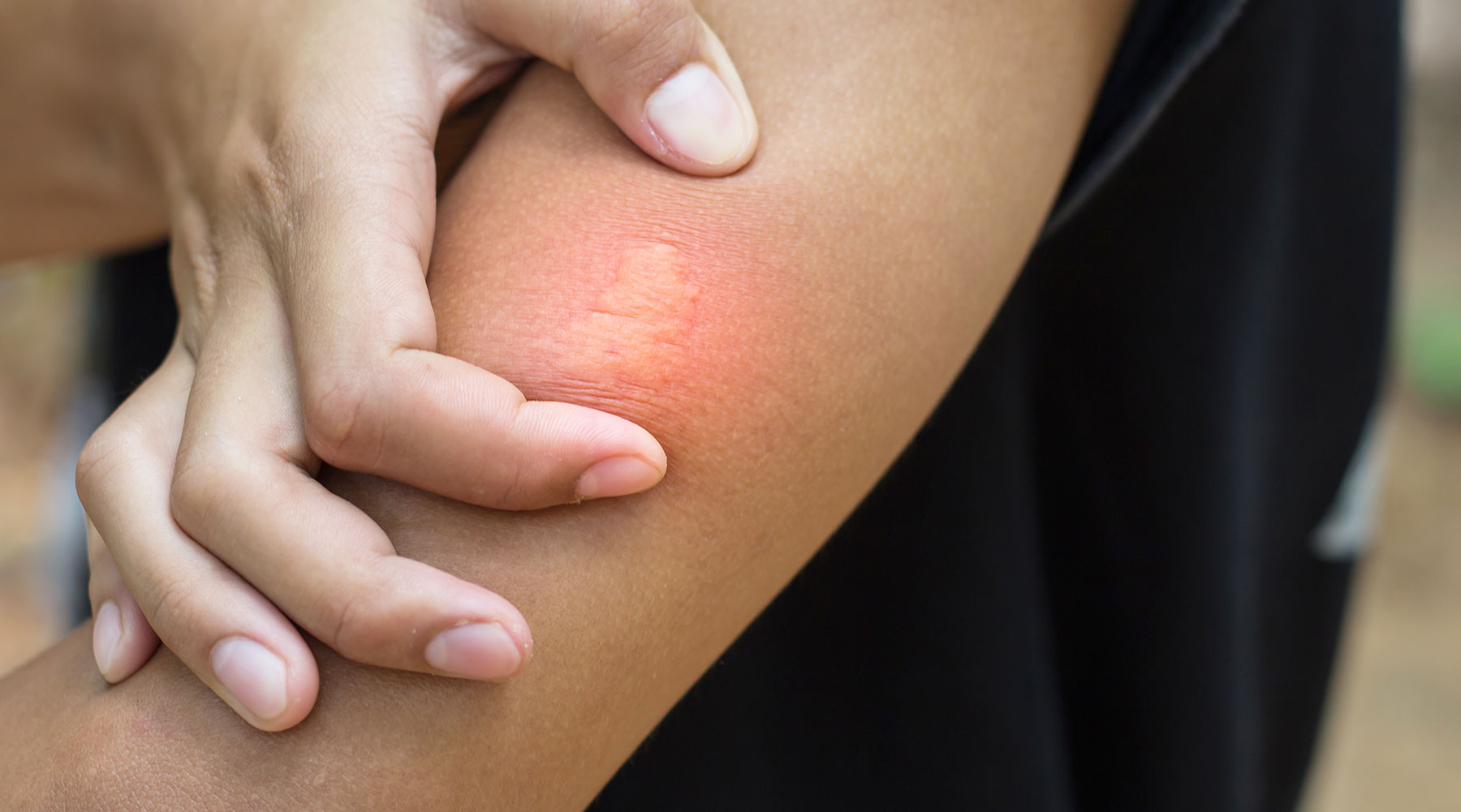Treating a Bee, Wasp, or Hornet Sting
Proudly Serving South Carolina | North Carolina | Georgia | Florida

Nothing can ruin a barbeque or family outing as quickly as a bee, hornet, or wasp sting. These insects are known for their painful stings, making many people run as soon as they see one. If you are stung, it is important to know if you are stung by a bee or a hornet, or a wasp. Hornets and wasps have a smooth stinger and are able to sting a person multiple times, whereas a bee has a barbed stinger which gets stuck into the skin and must be removed. Once you know the type of sting you received, you should quickly treat the sting site.
Start With A Quote On Us
Click below to contact Rocket Pest for a FREE pest control quote.
How to Treat a Sting
When you are stung by a bee, hornet, or wasp, it is first important to identify which insect stung you. Bees are fuzzy and rounded compared to wasps and hornets which are skinnier and hairless. According to the American Academy of Dermatology, it is important to act quickly when you receive a sting. Here is how to treat a bee sting at home:
- Remove stinger: If you are stung by a bee, it is important to remove the stinger with a card or your fingernails. Make sure to not use tweezers as they will cause the stinger to release more venom into the skin. A wasp or hornet will not usually leave their stinger behind.
- Clean the area: Make sure to thoroughly wash the area with soap and water. Ensuring the area is clean will help prevent infections.
- Cool the sting: Use an ice pack or ice wrapped in a cloth on the sting. Applying cold to the sting will help ease both pain and swelling from a sting.
- Apply medication: Take or apply over-the-counter medication. Taking an over-the-counter medication like acetaminophen or ibuprofen can help with residual pain. You can also apply topical treatments made for stings.
When to Seek Medical Intervention
Although most stings are minor and do not require much care, some people are allergic or sensitive to bee, wasp, or hornet venom that is injected into the skin when stung. Once someone has been stung it is important to monitor them for signs of a reaction that may require a trip to the doctor. Some of the signs of an allergic reaction to a sting include:
- Trouble breathing
- Nausea or dizziness
- Hives
- Swelling of the throat or tongue
- Fast pulse
A severe reaction to a bee, wasp, or hornet sting should not be taken lightly and you should seek medical care immediately if you think you are having a reaction.
Keeping Bees, Wasps and Hornets Away
Due to their nasty stings, most people want to keep these insects as far away from them as possible. There are a few things that you can do to help keep them away from your home such as making sure food is covered when eating outside, keeping garbage cans tightly covered, do not plant brightly colored flowers close to your house, and most importantly, remove any hives around your home. Removing nests yourself can be dangerous and lead to being stung, often many times, as you aggravate and disturb the residents of the nest. Leave the work to a trusted exterminator like Rocket Pest, we are able to safely and effectively remove nests from your yard and home. Call one of our trusted exterminators at 864-232-2406 for expert advice in dealing with bees, wasps, and hornet nests!
Back to Bees, Wasps & Hornets Control


